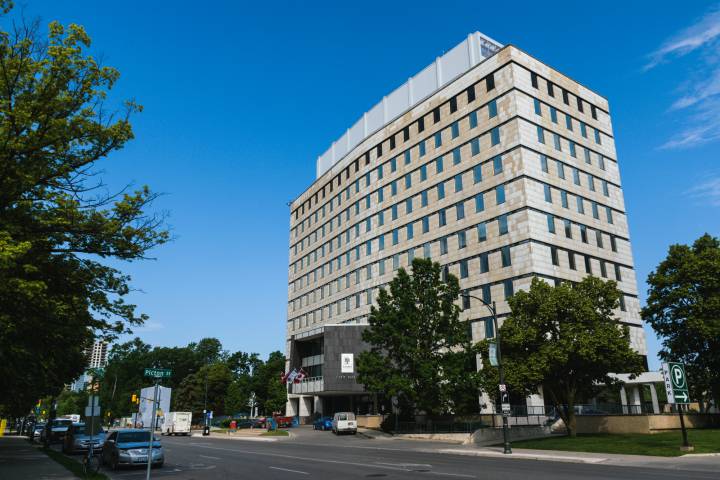A pre-election poll suggests London Mayor Matt Brown could be in trouble.

A new poll released Friday says 2014 runner-up Paul Cheng is in the early lead for the mayor’s chair, 10 months before Londoners go to the polls.
The survey, done by Mainstreet Research for the London Institute and sponsored by LiUNA Local 1059, found Cheng leads among decided voters.
When asked if the election were to be held today, 19.8 per cent of all respondents said they would vote for Cheng, compared with 10.4 per cent for Brown. Ward 6 Coun. Phil Squire garnered 8.5 per cent support, former police board budget chair Paul Paolatto got 4.7 per cent support, and Ward 7 Coun. Josh Morgan received 4.4 per cent support. Some 52.2 per cent of respondents said they were undecided.
While Cheng and Paolatto have indicated they will run for mayor, Squire and Morgan haven’t.
Any candidate who wants to run in this fall’s election must wait until May 1 to file nomination papers. Londoners go to the polls on Oct. 22.
Among decided voters, Cheng holds an even larger lead. 41.7 per cent said they would vote for Cheng, 21.7 per cent for Brown, 17.4 per cent for Squire and 9.6 per cent for Paolatto and Morgan.
- ‘We are scared’: Gen Z may hold the keys to the White House, and the parties know it
- Poilievre asks provinces to scrap sales tax on new homes under $1M
- As PBO says NATO target plan is off, here’s why it matters to the military
- Why so many elections in 2024? Chalk it up to the ‘beauty of math,’ says professor
The early poll is a blow to Brown, whose first term as mayor was rocked by scandal when he and former deputy mayor Maureen Cassidy admitted in 2016 to having a months-long affair.

Get daily National news
Brown has also championed London’s bus rapid transit project, which has been besieged by complaints from the public about poor communication.
Complicating matters for this fall’s election is the fact a ranked ballot will be used to decide a winner. London city council voted last year to become the first municipality in the country to use a ranked ballot for a municipal election.
In a ranked ballot system, voters rank candidates on the ballot in order of preference. A candidate must get more than 50-per-cent of the vote to win, so if no one achieves half the vote, the candidate with the fewest votes is eliminated and their votes are redistributed according to the next highest choice on those ballots.
Cheng emerged from obscurity in 2014 to mount a surprising challenge to Brown. The 60-year-old retired oil and gas consultant was largely self-funded in 2014, spending $124,000 of his own money on his campaign. Cheng, who has come out against BRT and spoke at a boisterous public meeting last May at Budweiser Gardens, got 34 per cent in 2014 compared to Brown’s 57 per cent.
While BRT and public transit will be a main issue in this fall’s election, the poll found it’s not the top issue at this early juncture.
Jobs and the economy is the most important issue for 17.7 per cent of respondents, just ahead of buses and rapid transit at 17.5 per cent. Property taxes were the key issue for 16.7 per cent of respondents.
The survey was conducted Jan. 11, 2018, among a sample of 1,018 adults. The sample was weighted by population parameters from the Canada 2016 Census for adults 18 years of age or older in London. The population parameters used for weighting are age and gender.
The margin of error for this poll is +/- 3.07 per cent at the 95 per cent confidence level.












Comments